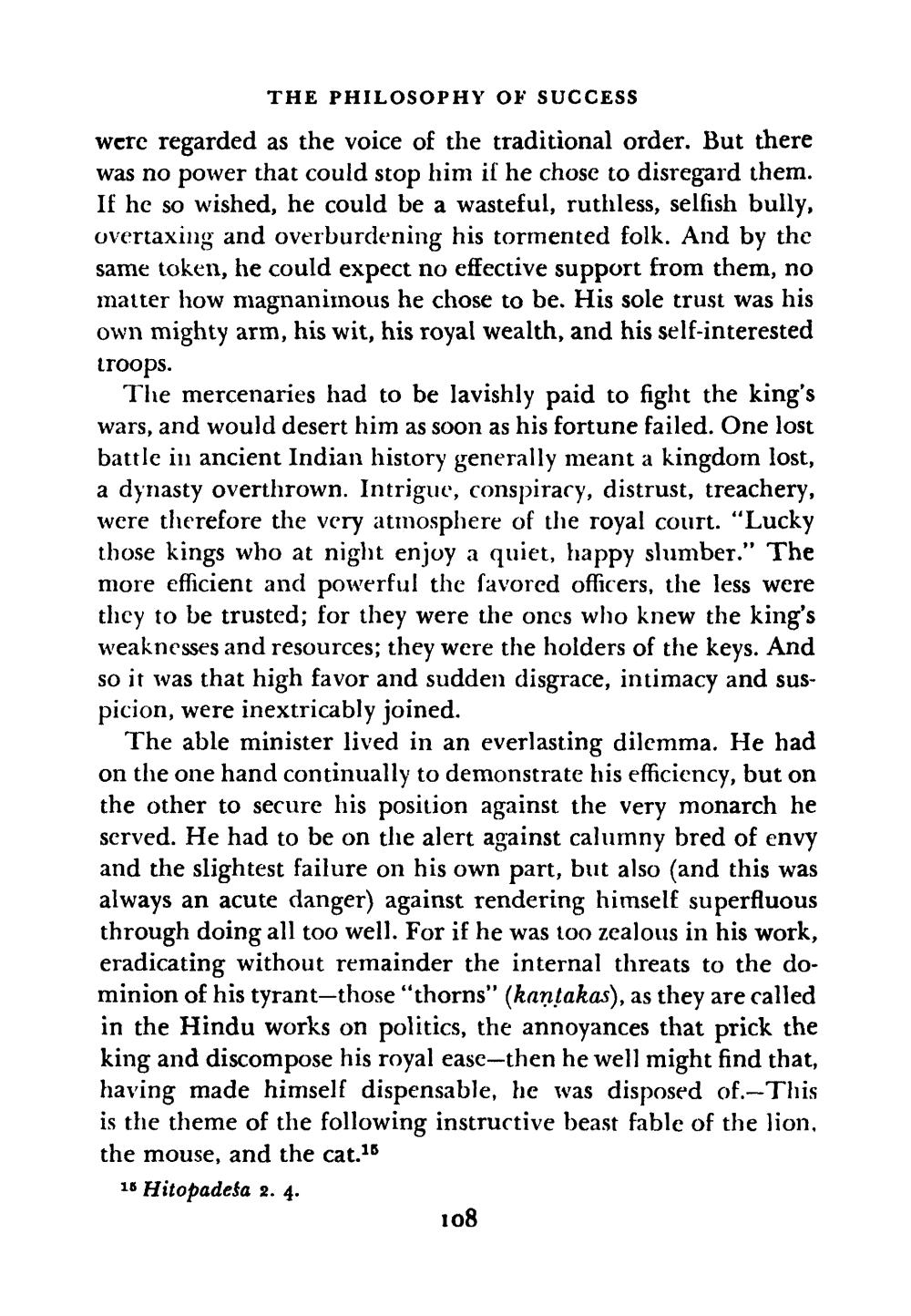________________
THE PHILOSOPHY OF SUCCESS were regarded as the voice of the traditional order. But there was no power that could stop him if he chose to disregard them. If he so wished, he could be a wasteful, ruthless, selfish bully, overtaxing and overburdening his tormented folk. And by the same token, he could expect no effective support from them, no matter how magnanimous he chose to be. His sole trust was his own mighty arm, his wit, his royal wealth, and his self-interested troops.
The mercenaries had to be lavishly paid to fight the king's wars, and would desert him as soon as his fortune failed. One lost battle in ancient Indian history generally meant a kingdom lost, a dynasty overthrown. Intrigue, conspiracy, distrust, treachery, were therefore the very atmosphere of the royal court. “Lucky those kings who at night enjoy a quiet, happy slumber.” The more efficient and powerful the favored officers, the less were they to be trusted; for they were the ones who knew the king's weaknesses and resources; they were the holders of the keys. And so it was that high favor and sudden disgrace, intimacy and suspicion, were inextricably joined.
The able minister lived in an everlasting dilemma. He had on the one hand continually to demonstrate his efficiency, but on the other to secure his position against the very monarch he served. He had to be on the alert against calumny bred of envy and the slightest failure on his own part, but also (and this was always an acute danger) against rendering himself superfluous through doing all too well. For if he was 100 zealous in his work, eradicating without remainder the internal threats to the dominion of his tyrant,those "thorns" (kantakas), as they are called in the Hindu works on politics, the annoyances that prick the king and discompose his royal ease-then he well might find that, having made himself dispensable, he was disposed of. This is the theme of the following instructive beast fable of the lion, the mouse, and the cat.16
16 Hitopadeša 2. 4.
108




